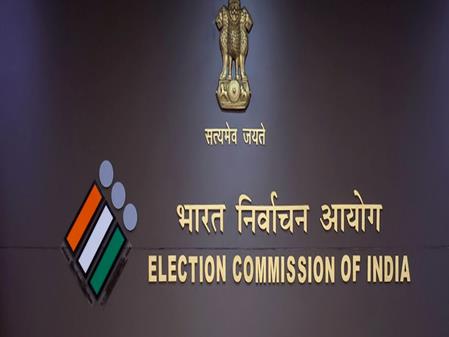ECI Rejects Bengal Govt's Plea For Inclusion Of Swastha Sathi, Ration Cards As Documents For SIR Exercise
Swastha Sathi cards are related to the West Bengal government's own health insurance scheme for the citizens, the cost of premium for which is borne by the state government. Both Swastha Sathi and ration (PDS) cards are identity documents that are provided by the state government.
Recently, the Supreme Court directed the commission to include Aadhaar cards as documentary identity evidence in case of the special intensive revision is conducted by the Election Commission.
The same exercise by the commission has already been concluded in the case of Bihar, which is going for assembly polls this year.
Quoting the direction of the apex court regarding inclusion of the Aadhaar cards in the list of documentary identity evidences for the special intensive revision, West Bengal Chief Secretary Manoj Pant, earlier this month, wrote a letter to the Chief Electoral Officer (CEO), West Bengal, Manoj Kumar Agarwal requesting the latter to take up the matter with the commission so that Swastha Sathi and ration (PDS) cards could be considered as inclusion in the documentary identity evidences for the special intensive revision for special intensive revision in West Bengal.
However, an insider from the office of the CEO's office informed on Thursday evening that the commission had communicated to the state government that inclusion of Swastha Sathi and ration (PDS) cards in the list of documentary identity evidence was out of the question.
“The commission rejected the state government's argument in favour of inclusion of the Swastha Sathi cards on the grounds that since all information about any West Bengal resident is verified by the state authorities before issuing the Swastha Sathi cards, the same could be used as proof of citizenship while preparing the voters' list. Similarly, the state government argued that the ration cards could also be helpful in identifying many people,” the CEO's office insider said.
The commission, according to sources, argued that a uniform rule for all Indian states for the special intensive revision should be followed, and no exception could be made for West Bengal.
Since the beginning, the Chief Minister and the ruling Trinamool Congress had been opposing the special intensive revision in West Bengal. According to her, the real intention behind special intensive revision was actually aimed at slapping the NRC and CAA in West Bengal.
On the other hand, the BJP had claimed that Trinamool Congress and Chief Minister Mamata Banerjee were opposing the special intensive revision for fear that names of many illegal Rohingya and Bangladeshi infiltrators would be deleted from the list following the revision exercise.

Legal Disclaimer:
MENAFN provides the
information “as is” without warranty of any kind. We do not accept
any responsibility or liability for the accuracy, content, images,
videos, licenses, completeness, legality, or reliability of the information
contained in this article. If you have any complaints or copyright
issues related to this article, kindly contact the provider above.
Most popular stories
Market Research

- Japan Buy Now Pay Later Market Size To Surpass USD 145.5 Billion By 2033 CAGR Of 22.23%
- BTCC Summer Festival 2025 Unites Japan's Web3 Community
- GCL Subsidiary, 2Game Digital, Partners With Kucoin Pay To Accept Secure Crypto Payments In Real Time
- Smart Indoor Gardens Market Growth: Size, Trends, And Forecast 20252033
- Nutritional Bar Market Size To Expand At A CAGR Of 3.5% During 2025-2033
- Pluscapital Advisor Empowers Traders To Master Global Markets Around The Clock






















Comments
No comment